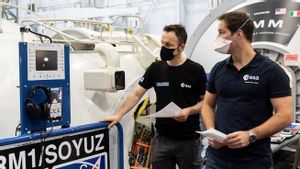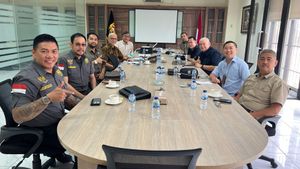JAKARTA - The Taiwanese government on Thursday, February 17 proposed a new law to prevent China from stealing its chip technology. This comes amid growing concerns in Taipei that Beijing is continuing to ramp up its economic espionage.
Taiwan's technological powerhouse has made the majority of the world's most advanced semiconductor chips. Those chips are used in everything from fighter jets to cell phones. Taiwan's own government has long been concerned about China's attempts to emulate that success, including through economic espionage, talent hunting and other methods.
Taiwan's cabinet said it had proposed a new offense for "economic espionage" under the national security law, stipulating sentences of up to 12 years in prison for those who leak core technology to China or "foreign enemy forces".
Using the chip giant TSMC's most advanced 2-nanometer chip-making technology as an example, cabinet spokesman Lo Ping-cheng said the technology could be considered critical to Taiwan's security under the new law. For this reason, extra strict protection is needed so that it is not stolen because it is their trade secret, in addition to the existing laws.
"Everyone knows that TSMC...has the world's leading technology," said Lo. "If their technology is stolen, there will be significant repercussions."
"A designated court for the crime of economic espionage will be set up to expedite the trial," Lo added.
The government has also proposed tightening laws to prevent Chinese companies from illegally poaching Taiwanese talent through companies set up in third countries.
SEE ALSO:
It has also tightened penalties for Chinese investments in Taiwan through illegal methods, which the government says has led to numerous cases of industrial espionage in recent years.
"Infiltration in Taiwan's industry from the red supply chain has gotten worse in recent years," Taiwan's Prime Minister Su Tseng-chang said in a statement, referring to a Chinese technology supplier.
"They are hunting our nation's high-tech talent and stealing the nation's core and key technology," he added. Taiwan's parliament is expected to pass revisions to the new law before it becomes law.
The English, Chinese, Japanese, Arabic, and French versions are automatically generated by the AI. So there may still be inaccuracies in translating, please always see Indonesian as our main language. (system supported by DigitalSiber.id)


















